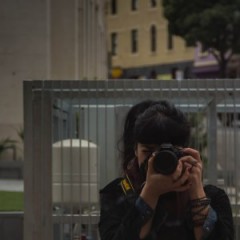I am always looking for ways to save money. It is a skill I have been perfecting for most of my life. Japan’s cheap capsule and hostel accommodation therefore appealed to my thriftiness and overall sense of adventure.
You will find below my comparison of them both to take the guess work out of the booking process for you.
Gender:
Sometimes capsule hotels are entirely devoted to female guests (check out Centurion Cabin and Spa) and sometimes, like some hostels, they have a designated floor or room for us independent women to use and feel safe in. If you do not want to share a bathroom with men make sure that your hostel has a female only bathroom on your level or that you have access to.
Safety:
I have never had an issue with security at either of these types of accommodation. Although at one or two hostels, I did sleep with my backpack in my bunk as the bed area was large enough to accommodate it, or I didn't trust the luggage storage system which consisted of a bike lock against a bar. Capsules on the other hand generally have an individual locker under your capsule or in the shared bathrooms.
Alarms:
Both of these types of accommodation are very dark and you cannot rely on any natural light to wake you up. If you need to be on a train at a certain time or just don't want to sleep away the morning you will often need some help to seize the day.
Hostels don’t generally ban alarms and therefore you can wake yourself up where as capsules generally do.
If you are staying at a capsule hotel, you can however arrange a wake up shake as I now refer to them. You confirm the time of your wake up nudge with reception staff and the next morning you will feel someone at your feet with a torch in your eyes as silent as the night that you are enjoying. It can be quite an interesting way to wake up. Note that generally you need to give a thumbs up back at your human alarm so they stop shaking you and know that you will not fall back to sleep. It is wise not to give a thumbs up until you are sufficiently annoyed enough to keep you from snoozing off again.
Confined space:
If you choose either of these types of shelter you will need to come to terms with the fact that your capsule or hostel bed can be used for sleeping, charging electronic devices and watching TV (through headphones provided if yours has a TV.) That is about it. Most do not let you make phone calls, eat or talk loudly whilst in the sleeping quarters.
I have found this to be a plus point as it makes me go and do some more exploring before or after sleep or makes me go and interact with people in communal areas.
Socialising:
Hostels are generally better for those of us who want to mingle with fellow travellers and can be great if you are after some travel advice from other tourists that have visited areas you are interested in. Capsule hotels can be social but in my experience people tend to stay there just to sleep and be left alone.
Ear Plugs:
Bring them with you or buy some extras here. If you are going to utilise this awesomely cheap accommodation, bring earplugs to sleep with for your own sanity. Capsules and hostels can be very noisy depending on how many people are sleeping on your level, at what time everyone else goes to bed, if they need to pack and re pack their bags with presents wrapped in plastic at 1am and whether people snore. You will hear all of this and more from your capsule or hostel dorm room and ear plugs have been my saving grace.
Overall:
As noted above capsules can be better for security however, they are not as social as hostels. The actual size of your bed space does not differ that much and I think it is better to select your accommodation based on its location and what it offers instead of the type.
Some hostels and capsules offer extras such as a free breakfast, late check out, bicycle hire, drink cards, personal safe, tourist information of the area and shower supplies. Others offer a bed and shared bathroom which is fine if you are staying there just to sleep. These included extras seem to be standard now in Tokyo, Nagoya, Osaka, and Kyoto. What they lack in personal space, they make up for in extra savings.











